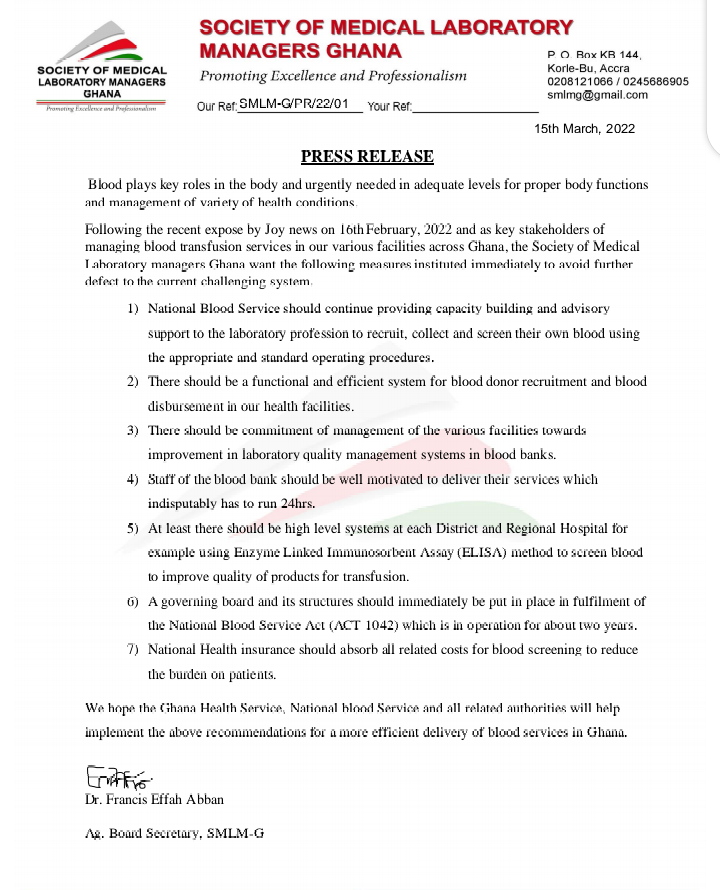The Society of Medical Laboratory Managers Ghana (SMLM-G) has called for the National Health Insurance Scheme to absorb blood-screening costs to lessen burden on patients.
The association noted that blood plays key roles in the body and is urgently needed in adequate levels for proper body functions as well as management of variety of health conditions.
The SMLM-G’s call follows a recent expose by Joy news on 16th February, 2022 dubbed “Exposé on how National Blood Service syndicate illegally sell a pint of blood for ¢750.”
But in a statement dated March 15, the association stated that “National Health insurance should absorb all related costs for blood screening to reduce the burden on patients.”
As key stakeholders of managing blood transfusion services in various facilities across Ghana, they advocated that the National Blood Service should continue providing capacity building and advisory support to the laboratory profession to recruit, collect and screen their own blood using the standard operating procedures.
The Society of Medical Laboratory Managers Ghana also outlined measures to avoid further defect to the current system such as a functional and efficient system for blood donor recruitment and blood disbursement.
While admitting that management should be committed towards improvement in laboratory quality management systems in blood banks, they stressed the need for the staff of the blood bank to be well motivated to run a 24-hour service.
In the society’s view, there should be high-level systems at District and Regional Hospitals such as using the Enzyme-Linked Immunosorbent Assay (ELISA) method to screen blood to improve the quality of products for transfusion.
The Medical Laboratory Managers Ghana further proposed putting in place a governing board and structures in fulfillment of the National Blood Service Act (ACT 1042).
They added that “we hope the Ghana Health Service, National blood Service and all related authorities will help implement the above recommendations for a more efficient delivery of blood services in Ghana.”










































































